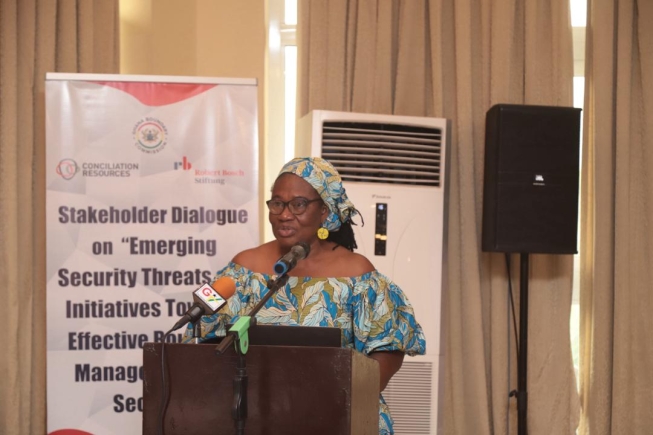
Effective boundary management: Stakeholders hold national dialogue
A crucial national dialogue meant to discuss emerging security threats and initiatives towards effective boundary management has been held in Accra.
Advertisement
The dialogue seeks to provide a collaborative platform for networking and sharing relevant information within the context of boundary governance, peace, security and development.
It was also to facilitate collaborative efforts between participating institutions towards effective boundary management, security and governance.
The national stakeholders dialogue was organised by the Ghana Boundary Commission (GhBC), with support from Conciliation Resources and the Robert Bosch Stiftung Foundation.
Participating institutions included the Ministry of National Security, the National Peace Council, the Ghana Immigration Service (GIS), the Accra Initiative, the Ghana Centre for Democratic Development and the Kofi Annan International Peacekeeping Training Centre.
The stakeholders discussed topics that would help to delineate and safeguard the country’s international boundaries.
Violence in Sahara
Opening the meeting, the West Africa Programme Director of Conciliation Resources, Janet Mohammed, stated that the Sahara, which covered large parts of Algeria, Chad, Egypt, Libya, Mali, Mauritania, Morocco, Niger, Western Sahara, Sudan and Tunisia, had experienced some level of violence in recent times.
“However, whether we like it or not, conflict comes in various forms with some generated through the boundaries and others from internal forces.
“There are conditions and situations that create the vulnerability for conflict to occur and so some of the perspectives of this meeting will reflect the weaknesses that lead to the spillage of conflict,” she said.
The director urged the stakeholders to take the opportunity of the national dialogue seriously to propose solutions that could curb emerging security threats in the region.
She explained that designing a homegrown solution would help the country contribute effectively to cross-border synergy at the regional level.
“When we started looking at this situation in the Ivorian-Liberian border issues, we identified that whereas Liberia had seven official border posts, Cote d’Ivoire had four of these posts.
“This means that when citizens of Liberia travel to the border posts and use the other three which do not have adjacent posts with Cote d’Ivoire, the entrance is illegal,” Mrs Mohammed added.
Deepening understanding
The Commissioner-General of the GhBC, Major General Emmanuel Kotia, said the workshop was aimed at creating a collaborative platform and environment for networking and the sharing of relevant information within the context of boundary governance, peace, security and development.
He said the programme also aimed to deepen understanding and to learn from initiatives and strategies being implemented by all participating institutions within the framework of boundary management.
Towards that, he said there was a need to recognise that security was not an isolated concern but rather a complex arrangement or architecture shaped by various factors, including socio-economic dynamics and governance frameworks.
“By addressing the root causes and enhancing our resilience, we can foster a safer and more prosperous future for all.
“In Ghana, where the dynamics of land ownership and usage are diverse and intricate, the need for clear and well-maintained boundary structures cannot be overemphasised,” he said.
He added that the country today was confronted with challenges ranging from encroachment on lands along international boundaries and disputes to inadequate documentation and maintenance, all of which underscored the urgency of the collective efforts.




